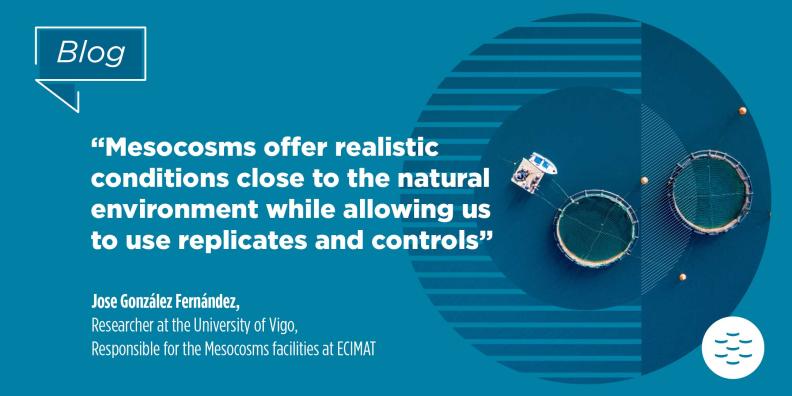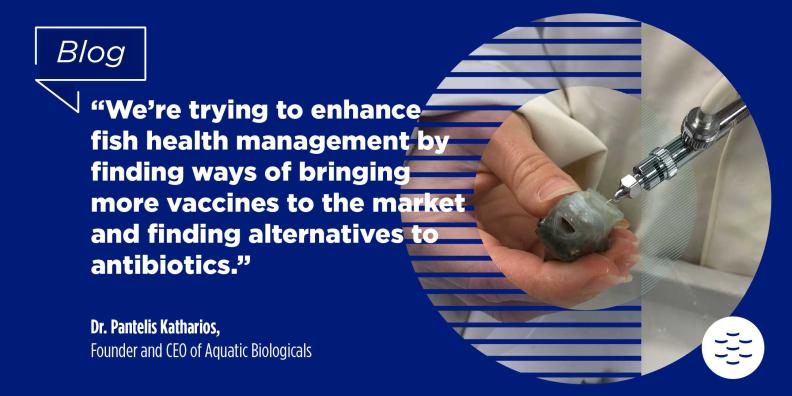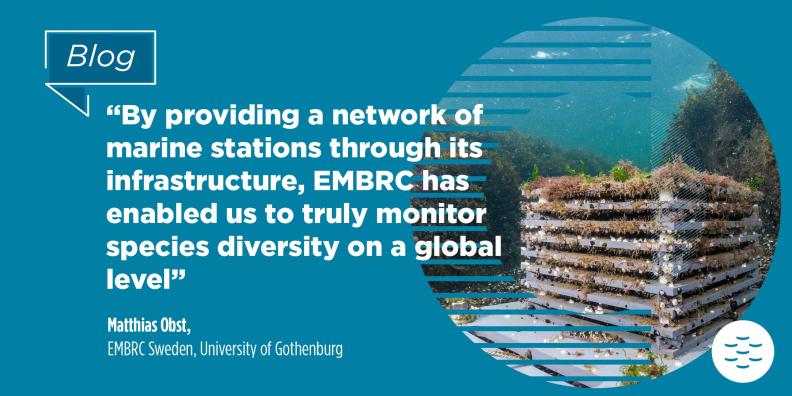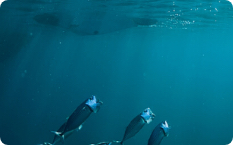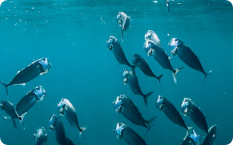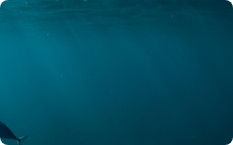Paris, 5 June -
In the run up to this World Ocean Day, we’re proud to share how EMBRC is advancing the understanding of marine life and creating a sustainable future for everyone in our 2023 Annual Report.
As the only research infrastructure for marine biology and ecology research, EMBRC works with partners to accelerate knowledge of marine biodiversity through research and ocean exploration so we can understand the pressures on life in the ocean, advance scientific innovation, and promote the sustainable use of marine resources. Throughout 2023, we have continued to work towards the UN’s Sustainable Development Goals (SDGs) and tackle societal problems through a range of exciting projects, and our work is showcased in this year's report.
A word from our Executive Director
“We’re proud of our work to boost marine science and innovation over the past year and our 2023 Annual Report showcases the support we offer to the research community as well as our commitment to sustainability,” says Nicolas Pade, Executive Director, EMBRC Headquarters.
“Sustainability has become a bit of a buzzword. It’s a term that’s often used but the nuances aren’t always fully understood. Achieving sustainability faces many challenges, including a poor understanding of biodiversity, particularly in the ocean, and a lack of biodiversity mapping, and limited baseline data. We’re doing our bit to make science a real enabler of sustainability, and helping to overcome these issues by facilitating the study of life in the sea, plugging knowledge gaps and boosting innovation for a Blue Economy,” adds Pade.
A range of research services for academia and industry
As the only research infrastructure for marine biology and ecology research, EMBRC’s services help academic and industry researchers understand the pressures on life in the ocean and find sustainable ways of using marine resources. With our support, scientists can access a variety of European ecosystems, habitats and organisms (cultured, reared or collected from the field) and we’re continuing to improve our catalogue. We can also offer experimental facilities (such as aquaria and tanks, mesocosms, dry and wet labs, and climate-controlled rooms), technology platforms (e.g imaging, bioprospecting platforms, high pressure liquid chromatography, remote sensing and telemetry) and teams with high levels of scientific and technical expertise.
Communicating sustainable science in 2023
“At EMBRC, we recognise the importance of communication in supporting scientific research so it can influence societal views, and inform economic and conservation policy,” says Anabelle Chaumun, Communications Manager, EMBRC Headquarters.
“Showcasing our progress through our 2023 Annual Report is just one element of the work we're doing to raise awareness of science, ocean observation and innovation, and highlight the services we can offer research projects that will have a tangible impact on mitigating climate change. Finding ways of tackling environmental issues such as biodiversity loss and pollution also allows us to address the related societal issues we’re facing in the 21st century, including food insecurity, and social inequalities.”
Supporting the scientific community in 2023
EMBRC’s network of European marine sites allows scientists to access unique ecosystems, organisms, resources, services, and facilities that support their studies.
In 2023, EMBRC granted 197 access requests from 216 users: a 30% and 17% increase on 2022, respectively. Users came from various fields, including the biological (68%) and environmental (32%) sciences as well as chemistry, biomedical sciences and clinical medicine.
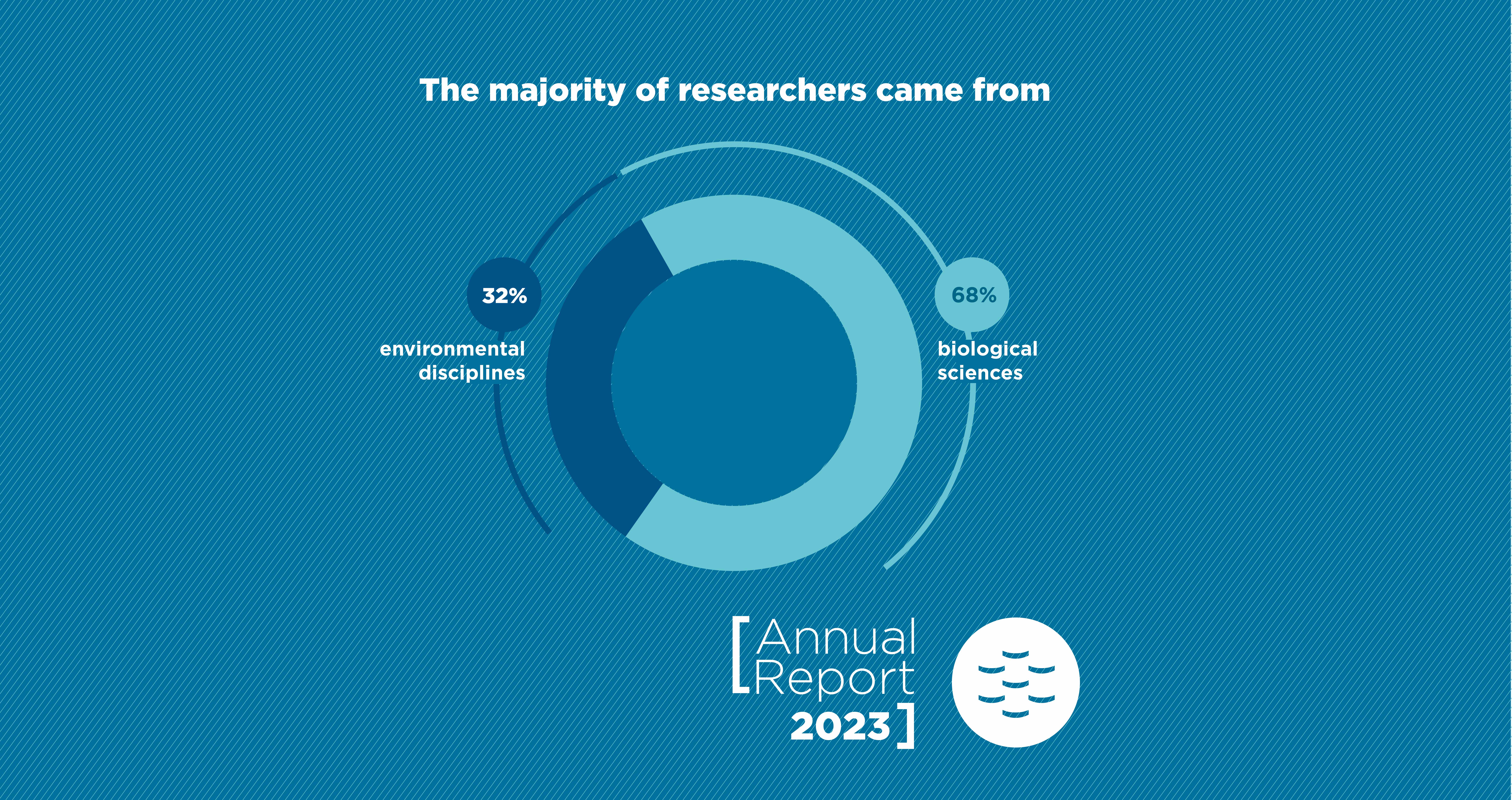
In 2023, EMBRC’s most accessed service was its experimental facilities, such as aquaria and tanks, mesocosms, dry and wet labs, and climate-controlled rooms. One reason for the increased appetite for this service was the Traversing European Coastlines expedition, organised by EMBL, Tara, and EMBRC. The expedition visited many EMBRC members in 2023 and made use of their experimental facilities. It also meant that the majority of users in 2023 were able to access EMBRC services thanks to international funding (with the TREC expedition making up a large proportion of that).
Academic users (universities and research organisations) remain EMBRC’s largest and core user community (80%). We’re also seeing an increase in the use of our facilities by the private sector (20%), making this group one of growing importance, particularly for our national operators.
Our users have increased steadily since 2021 – with the successful TREC expedition bringing in lots more users this year – so we know our services remain popular with and beneficial to the European research community. We’re confident our numbers will continue to grow in 2024.
Read the report
For more information about how our network of marine stations across Europe help to advance global knowledge of the oceans, and the services we can provide, read our 2023 Annual Report.












